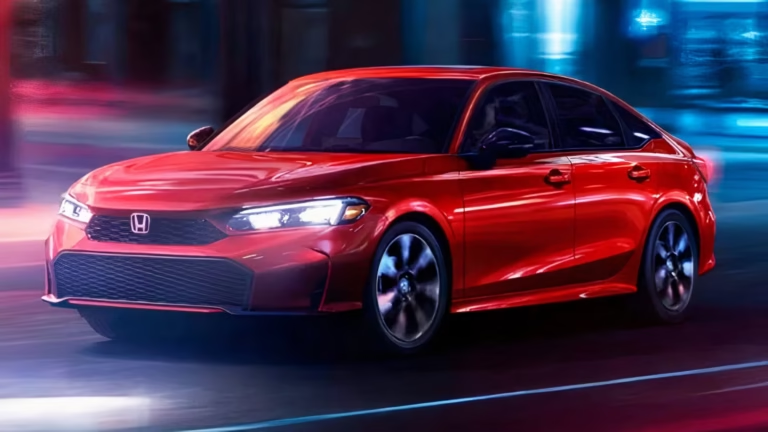When it comes to buying a new or used vehicle, reliability isn’t just a luxury—it’s a necessity. A reliable car keeps you safe, helps you avoid unnecessary repair bills, and gives you peace of mind every time you start the engine. In February 2025, J.D. Power released its U.S. Vehicle Dependability Study, revealing a fresh perspective on which cars stand out and which ones have fallen behind in recent years. The results show that while the automotive industry has had its challenges—especially during the COVID-19 pandemic—many brands and models have managed to maintain exceptional performance and durability.
In this article, we’ll break down the concept of reliability, explore the findings from the 2025 study, discuss the pandemic’s impact, and highlight the vehicles that have proven themselves as the most reliable cars in today’s market.
Understanding Vehicle Reliability
Reliability refers to how consistently a vehicle performs over time without encountering serious mechanical or electrical issues. A reliable car starts every morning, drives smoothly, and requires fewer repairs over its lifetime. It’s not just about a car’s ability to function—it’s about the confidence it gives its owner.
A highly reliable car tends to have:
- Minimal mechanical breakdowns
- Durable components that last years
- Consistent performance in varying weather conditions
- Lower maintenance costs over time
For many consumers, reliability can be even more important than style, speed, or luxury features. That’s why the most reliable cars tend to have loyal followings and strong resale values.
The 2025 J.D. Power Vehicle Dependability Study
The J.D. Power study has been an industry benchmark for decades. It measures the number of problems experienced per 100 vehicles (PP100) over a three-year ownership period. A lower PP100 score means fewer issues, which translates to higher dependability.
The 2025 report, however, delivered a surprising insight: Vehicles built during the COVID-19 pandemic showed more problems than those made in any year since 2009. This spike in issues was linked to global supply chain disruptions, workforce shortages, and shifts in manufacturing processes. Cars produced between 2020 and 2022 often faced delays in parts availability, inconsistent quality control, and rushed production schedules.
How the Pandemic Affected Reliability
The COVID-19 pandemic touched every corner of the world, and the automotive sector was no exception. With factories shutting down temporarily and many workers adjusting to new safety protocols, car production became more complicated than ever. Some specific challenges included:
- Supply Chain Shortages – Essential components like microchips were in short supply, leading to substitutions or design changes that sometimes affected long-term durability.
- Reduced Workforce – Skilled labor shortages meant certain stages of vehicle assembly had less experienced hands on deck.
- Testing Delays – New models sometimes skipped or shortened certain testing phases to meet deadlines, impacting quality control.
Despite these hurdles, certain brands still managed to deliver vehicles with minimal reliability issues, proving their commitment to high manufacturing standards.
Bright Spots in 2025: Brands That Excelled
While the pandemic years were rough, many automakers rose to the challenge. These brands invested in quality control, adapted to supply chain issues, and focused on customer satisfaction. According to the 2025 study, the most reliable cars came from brands that maintained consistent production practices and prioritized long-term dependability.
Some notable strengths seen in top-performing brands included:
- Strong engineering heritage – Decades of refining mechanical components helped some manufacturers maintain reliability despite production challenges.
- Proactive maintenance programs – Some brands offered extended warranties or free maintenance to address potential pandemic-era issues.
- Simplified technology – Models that avoided overly complex new tech features often experienced fewer problems.
Features That Make a Car More Reliable
When looking for the most reliable cars, certain design and engineering choices can make all the difference. Vehicles that tend to score high in dependability often share these traits:
- Proven Engine Platforms – Engines that have been used and refined over several years are generally more dependable.
- Fewer Complex Electronics – While high-tech features are appealing, they can introduce more failure points.
- High-Quality Materials – Stronger metals, durable plastics, and long-lasting upholstery can extend a car’s lifespan.
- Routine Maintenance Support – Brands that make maintenance easy and affordable help their cars last longer.
Why Reliability Matters More Than Ever
The cost of vehicle ownership has climbed in recent years, from rising fuel prices to higher repair costs. A dependable car can save owners thousands of dollars over its lifespan. Here’s why reliability is a top priority for buyers in 2025:
- Lower Repair Bills – Fewer breakdowns mean less money spent at the mechanic.
- Increased Safety – Reliable cars are less likely to leave drivers stranded or suffer sudden mechanical failures.
- Better Resale Value – Cars with a history of strong reliability command higher prices in the used market.
- Stress-Free Driving – Peace of mind is priceless when you know your vehicle won’t let you down.
What the Future Holds for Reliable Vehicles
Automakers are constantly innovating to balance technology and dependability. While features like electric drivetrains, advanced driver assistance systems, and connected infotainment are becoming standard, manufacturers must ensure these additions don’t compromise long-term reliability.
Some trends to watch for in the coming years include:
- Improved Battery Technology – Especially important for electric cars, where battery reliability is crucial.
- Predictive Maintenance AI – Systems that can alert drivers to potential issues before they become major problems.
- Sustainable Manufacturing – New eco-friendly processes that may also enhance vehicle durability.
Conclusion
The 2025 J.D. Power U.S. Vehicle Dependability Study showed that while pandemic-era vehicles faced more problems, many brands still excelled in producing the most reliable cars. For buyers, this means it’s still possible to find a dependable ride that will last for years, even in a challenging manufacturing climate.
If you’re in the market for your next vehicle, don’t just focus on style or performance—make reliability your top priority. By doing so, you’ll invest in a car that offers peace of mind, lower ownership costs, and a smoother driving experience for the long haul.











